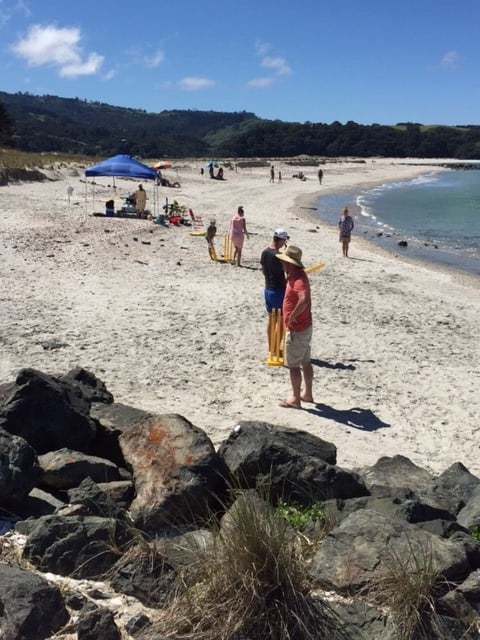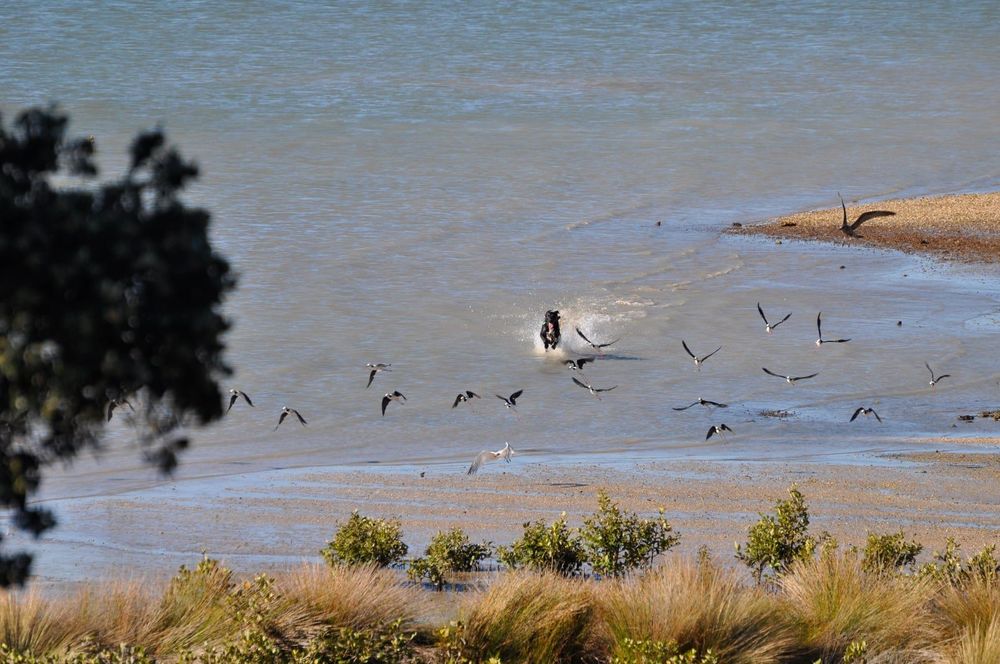'Selfish Beachgoers' Result In The Deaths Of Protected Shore Birds.
The Matakana App
14 December 2020, 6:30 PM
 A dead, half grown, Variable Oystercatcher chick. Images - Ian McLean
A dead, half grown, Variable Oystercatcher chick. Images - Ian McLeanDisturbance by selfish beachgoers has resulted in the deaths of young shorebirds at Omaha Beach.
At the end of the three-kilometre beach is a fenced 500-metre-long, predator proofed sanctuary where northern New Zealand dotterels and variable oystercatchers breed, and migrant bar-tailed godwit and banded dotterels roost.

Unfortunately, despite the majority of the beach being fully open to the public, a number of people have decided to use the predator-proofed sanctuary as their own private beach. They merrily walk past the signage and through the fence with their barbecues, shelters and deck chairs, to swim, lounge in the sun, play cricket and enjoy a picnic or barbecue meal all within a bird sanctuary.
The resulting disturbance to the breeding birds means chicks are not being fed and die of starvation. Some chicks and eggs are actually stood on and squashed during games of cricket. Other chicks only grow slowly, never gaining the body condition to being able to fly.
The level of stress placed on the adult birds by the presence of people within their nesting territory is immense. They are forced into having to constantly distract people away from their nest and chicks. Eggs are often left unattended and are vulnerable to natural predators such as black-backed gulls.

Despite the shorebirds breeding within a predator proof sanctuary, the constant level of disturbance by people results in an appallingly low level of survival. Volunteers from the Omaha Shorebird Protection Trust monitor both the numbers and breeding success of shorebirds at Omaha Beach. They report that from a total of 25 pairs of northern New Zealand dotterels, only three chicks survived to fledge and from 20 pairs of variable oystercatchers only one or perhaps two chicks survived during the 2019/2020 summer breeding season.
The Omaha volunteers are part of the Dotterel Minders network, a collective that help monitor and protect breeding northern New Zealand dotterels each summer. These caring folk have the sometimes difficult task of informing the often unaware public about the presence and needs of the shorebirds. Whilst most people are appreciative of the advice and are often keen to learn more about the birds; there is a minority who can be both abusive and uncaring. The most common response from this minority is that “it’s only people that matter”.
Omaha Beach is a nationally important breeding and roosting site for many of New Zealand's native shorebirds. In addition to the breeding northern New Zealand dotterels and variable oystercatchers, there are up to 400 migrant native bar-tailed godwit and 300 endemic banded dotterels that roost at the Omaha Spit. These species are often disturbed whilst they rest. This can be very problematic, especially for the bar-tailed godwits who have flown on an amazing eight-day, 12 thousand-kilometre flight direct from Alaska to get here.

